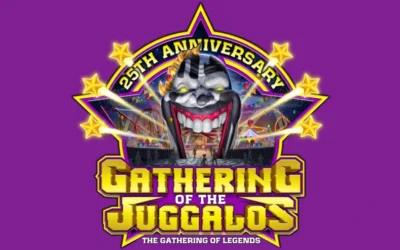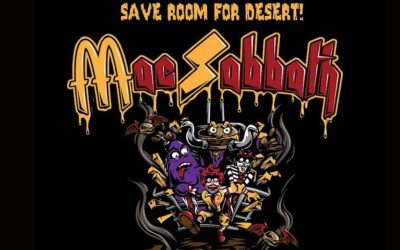Last week, Ticket Summit® returned to its home base at The Venetian in Las Vegas for a sixth year, as it welcomed professionals from across the ticket industry to the summer edition of the biannual conference and trade show.
Throughout the three-day event, held July 13-15 at the Vegas resort and casino, one word seemed to permeate all panel discussions and keynote addresses: Change.
The word echoed throughout panel discussions and keynote speeches, but it was also a noticeable year of change for the conference itself. Ticket Summit broke all attendance records from previous years with more than 750 registered attendees for Vegas 2011, according to Ticket Summit’s executive director, Molly A. Martinez, Ph.D.
The marked increase in registration was obvious as attendees packed one of the Venetian’s conference rooms to hear the July 15 keynote address of Fred Rosen. Rosen previously served as Ticketmaster’s CEO from 1982 to 1998, and announced his return to the ticket industry in late 2010 as the co-president and co-CEO of Outbox Enterprises, LLC.
Rosen opened the 45-minute address by quickly delving into the topic of change that had already been so prominent in the earlier days of the conference. He began, “This is a very unique time in this industry because I can see serious changes in the future in terms of how people will buy tickets.”
Part of that change includes Outbox Enterprises, which is comprised of Rosen, AEG, Montreal-based Outbox Technology and Cirque Du Soleil. Outbox’s white label ticketing solution has presented itself as a rival to Ticketmaster’s centralized system, and an increased white label approach is what Rosen sees as the industry’s not-too-distant future.
“There’s no room for a third party anymore, for a middle man,” Rosen said. “The building is a brand, every team is a brand…so ideally what they want is a direct relationship with the consumer.”
Once a brand can begin to sell tickets directly to its consumer base, the next concern is knowing how to appropriately price that product. Rosen noted that ticket sellers too often turn to discounts as the only option for moving distressed inventory when they should consider added-value options instead. “People have been conditioned where, if they wait until the last minute, they can get a discount, which destroys the integrity of the product,” he said. “If you have tickets to sell, you need to price them so it doesn’t ruin the value of other events you have on sale.”
Rosen also briefly touched upon one of the industry’s hot-button issues, the increasing movement against restrictive paperless ticketing. According to Rosen, Outbox is “agnostic about the secondary market,” and bases its stance against restrictive paperless ticketing on what it believes is in the best interest of the consumer.
“The law that was passed in New York is what we think is the right law,” Rosen said, referring to the recently signed bill that prohibits the exclusive use of non-transferrable paperless tickets by New York venues. “Trying to regulate tickets is like enforcing prohibition — it’s not going to happen.”
Despite the challenges the industry faces at present, Rosen said that’s part of what motivated him to reenter ticketing: “You go into a business when times are tough because people don’t expect you to be in that business, and it allows you to lay a foundation… So I think now is the right time.”
Just a day earlier, the July 14 “State of the Industry” keynote panel touched upon many of the same issues of change. The panelists — Ticket Masters: The Rise of the Concert Industry and How the Public Got Scalped co-authors Josh Baron and Dean Budnick, Ph.D.; Seatwave CEO Joe Cohen; TicketNetwork, Inc. founder and president Don Vaccaro; and Tickets.com president and CEO John Walker — weighed issues of competition in the primary market, and the secondary market’s role in the industry.
“When you look at what’s happening in the industry, and what may happen over the next 24 to 36 months, it’s all changing,” Cohen commented during the keynote. “Distribution and box office companies are beginning to separate a bit… You can envision a model not far into the future where you have people making the software [to sell tickets] and a whole bunch of people distributing the tickets.”
The people distributing the tickets will increasingly be ticket brokers, as Vaccaro foresees it. “There’s always a buzz word, and in 2010 it was transparency. This year, it’s distressed inventory — everybody has it,” he said, going on to note that distressed inventory increasingly motivates professional sports teams or other groups to reach out to brokers when they need to move tickets.
“For the past 5 years, the secondary market has been growing phenomenally…[and] the brokers who are out there are so much more professional than they were 5 to 6 years ago,” Vaccaro continued, praising those brokers in particular who make good customer service a priority.
The July 14 keynote panelists were also asked whether industry changes may include more competition in the primary market in the wake of the Ticketmaster/Live Nation merger. As they responded, the consensus seemed to prove that real competition is possible, though potentially several years off.
“I think there is room for competition,” Baron began the discussion. “There continues to be options, when we look at Outbox, TicketFly, things Eventbrite is starting to do… Ticketmaster doesn’t have the strategic authority it used to.”
Budnick agreed with his co-author and co-editor at Relix magazine, but stressed that the primary market’s landscape will not change overnight. “It will take time because so many [Ticketmaster] contracts…are for an extended period of time,” he explained. “I do feel like there’s a major opportunity for venues to do things themselves. It will just be a matter of waiting things out until those contracts are available.”
Vaccaro deferred to Budnick’s comments on competition in the primary market, only adding, “The biggest stumbling block is that venues do have those eight- or nine-year contracts…so there could be a sea change, but it may take a while.”
Change may take a while, but planning is already underway for the next Ticket Summit conference. As doors closed for Vegas 2011, registration opened for the New York City 2012 event, scheduled for January 18-20 at the Waldorf=Astoria. All-access passes to that next Ticket Summit are now available for $419. For more details about the conference, and to register for the January event, visit TicketSummit.org.
TicketNetwork is the parent company of TicketNews.



